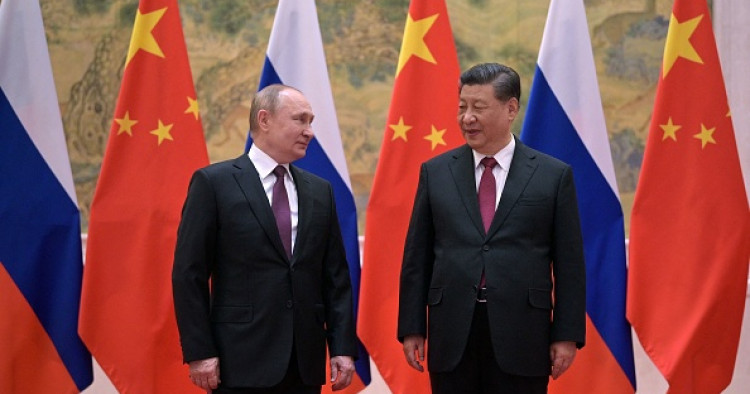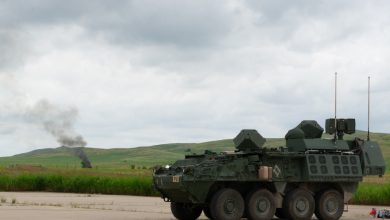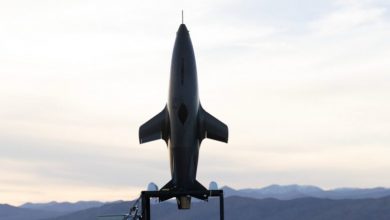How China’s proactive Middle East policy can shape regional balance

By brokering a difficult normalisation deal between Saudis and Iranians, the two Middle Eastern rivals, Beijing has shown that it can be a stabilising force across the turbulent region.
Chinese President Xi Jinping is paying a critical visit to Russia’s wartime President Vladimir Putin in Moscow, where Beijing is expected to step up its mediation efforts between Kiev and the Kremlin after securing a crucial peace deal between the Saudis and Iranians.
Though the West has long dismissed China, like Russia, as an autocracy which can not present itself as a reliable model to other countries, the world’s second-biggest economy has slowly penetrated regions like the Middle East, where the Western sphere of influence has been recently diminishing due to wars and badly-designed policies.
Most recently, mediating the Saudi-Iran reconciliation deal, China has been able to not only project itself as a peacemaker in a chaotic region but also secure a large chunk of its energy needs from the two biggest oil-producing Middle Eastern states, surprising many Western observers with its political sophistication. China is the biggest customer of both Iranian and Saudi oil.
Raffaello Pantucci, a prominent Western expert on China and a senior associate fellow at the British think-tank Royal United Services Institute (RUSI), assesses the Chinese role in the Saudi-Iran deal as “a substantial way to start” Beijing’s “dynamic” foreign policy involvement in the tumultuous Middle Eastern politics.
“What the Chinese are trying to do is demonstrate that they have a different offer that’s on the table that isn’t the American offer and that they can bring something else and broker peace,” Pantucci tells TRT World, referring to the recent deal between Saudis, the Middle East’s leading Sunni power, and Iran, the biggest Shia-majority country. Sunni and Shia powers have long fought for political supremacy across the Middle East.
The Chinese mediation corresponds to Xi’s global designs in which Beijing, as the representative of 21st-century communism, should rise in “global governance” to ensure “more stability and positive energy to world peace”, according to the Chinese president, who secured an unprecedented third term last week.
The Saudi-Iran deal is also a win-win situation for both the Middle East and the two regional enemies, which consumed their resources to get the upper hand in conflicts from Lebanon to Syria, Iraq and Yemen, where mixed Sunni and Shia populations live.
While Pantucci says China’s long-term political relevance in Middle Eastern politics remains to be seen, he still finds Beijing’s intervention to help “bring Riyadh and Tehran together” a sophisticated way to launch its engagement with the region. The deal is definitely not coincidental for China, which is the largest trading state with the Saudis and the top export partner of Iranians.
“Over the years, in addition to developing economic and trade cooperation with Middle Eastern countries, China has also been paying attention to the security of the Middle East and actively promoting peace in the Middle East,” says Hongda Fan, a professor at the Middle East Studies Institute of Shanghai International Studies University.
“As the national, regional and international situation changes, both China and the Middle Eastern countries need to deepen their relations. Because the lack of security in the Middle East not only brings difficulties to the local people but also poses increasingly obvious challenges to the deepening of relations between China and the region,” Hongda tells TRT World.
The Chinese professor believes that China and the Middle Eastern states will continue to increase their cooperation in more fields, making ties “deeper and deeper”.
West’s diminishing influence
While Pantucci sees Chinese engagement with the Middle East as “an interesting dynamic”, he thinks “it really is more about people’s relations with the West, in particular with the United States, than it really is about China in the Middle East.”
The US invasion of Iraq and American “double standards” on the Palestinian conflict – on which China has long claimed to be neutral – have created a bad Middle Eastern perception of the West. As a result, the Middle East is much more open to China’s growing global influence than ever, according to experts.
“China becomes more influential in proportion to the disillusionment and discontent of Gulf states with the US. The more Washington alienates the Gulf states, the more China finds greater opportunities to expand its ties and cooperation with the Gulf,” says Sami Hamdi, a Middle Eastern political analyst and head of the International Interest, a political risk group.
While China’s previous Middle Eastern stances were “limited due to Gulf attitudes of flirting for the sake of annoying the US”, Beijing’s well-thought-out recent moves aim to gradually wean the region’s dependency off the US in the long-term, Hamdi tells TRT World. “Strengthening ties with China are being seen as an important means of achieving that,” he adds.
Among other Middle Eastern states, Riyadh has occasionally been disappointed by the US disregard for Iran-backed pressure against the Gulf state. This disappointment has increased the sentiment in Riyadh to seek other allies like China, particularly after the Houthis, a Tehran-supported Yemeni group, attacked the kingdom’s biggest oil facilities last year. Saudis have fought a brutal war with the Houthis in Yemen since 2015.
On the other hand, Iran, an anti-Western state which has long been targeted by US sanctions, has strengthened its rapprochement policy with China following the Trump administration’s withdrawal from the landmark nuclear deal. Tehran also signed a $400 billion deal with the Asian giant last year.
In the end, the West appears to be at a loss in terms of securing the interests of both Saudis and Iranians, the two archenemies fighting for supremacy across the Middle East.
China’s deepening relations with the Middle East emanates from the need of both sides, according to Hongda. “Many countries in the Middle East also have internal needs for diplomatic diversification,” adds Hongda.
But Galia Lavi, an Israeli researcher and Deputy Director of The Diane & Guilford Glazer Israel-China Policy Center at the Institute for National Security Studies, sees China’s Middle East opening as a “mainly business-oriented” approach rather than as a political engagement.
While she assesses China’s Middle East policy as “a big question” in terms of its direction, she still believes it’s based on the country’s “diverse economic ties” with the turbulent region, aiming to keep the situation calm and safe for open supply chains, a crucial interest for Beijing’s soft power status.
Sami al Arian, a Palestinian-American professor and director at the Center for Islam and Global Affairs (CIGA) at Sabahattin Zaim University, has similar thoughts. “So far, China’s policy in the Middle East has been to concentrate on economic gains and economic security in terms of energy security.”
“If we look at China’s relationship with Iran, Saudi Arabia and other Gulf states, it’s pretty much concerned about securing its energy needs in oil and gas. This hasn’t really evolved yet into a geopolitical competition to try to gain political advantages or military bases or any of the sort that the US has enjoyed for the past half century or more,” Arian tells TRT World.
Challenging the US?
Experts, however, don’t see clear signs of a Chinese challenge in the Middle East against the world’s biggest military and economic power.
“China’s deepening relations with the Middle East cannot be simply regarded as a challenge to the US. If the US can meet the development needs of Middle Eastern countries and their people, I believe that the US will still be popular in the Middle East. Not to mention that so far, no country has the hard power to challenge the US in the Middle East,” says Hongda.
While Lavi finds China’s recent Middle East moves like the Saudi-Iran deal as “disturbing”, she does not think that Beijing’s policies can amount to challenging the US, adding that the Asian giant does not aim to replace the US as the policeman of the Middle East.
In the mid or long term, China will probably not have military bases in the Middle East to challenge the US presence because Beijing does not have an aggressive global military posture except its own region in the Pacific, according to Arian.
Some experts, including Henry Kissinger, a top diplomacy figure, also feel that China’s Saudi-Iran deal might increase concerns in Israel, a nemesis of Tehran and a powerful US ally, which might become more careful in targeting Iranian assets across the Middle East after seeing Beijing’s rapprochement with the Shia-majority state.
According to Kissinger, both Israeli and American pressure on Tehran now needs “to take into account” Chinese interests in Iran. But as time goes by, “Outside forces such as the US and Israel will try to poison this deal,” Arian views.
As long as the US continues to keep large military bases across the Middle East and the economic priorities of the Gulf states aim to attract Western companies more than Chinese companies, it will be difficult for Beijing to challenge Washington’s power base in the region, according to Hamdi.
China is taking advantage of Western loopholes in the Middle East, expanding its influence in the region rather than challenging the US, says Hamdi. The Chinese strategy’s long-term success largely depends on both Beijing’s capabilities to capitalise on Western failures and how much Gulf states like Saudi Arabia are “ready for any US backlash” if their ties with Beijing develop into higher levels, he adds.
Pantucci, the China expert, also thinks that it’s far too early to say that China has replaced the US in the Middle East because the Saudis and others in the region continue to see the US as a critical security guarantor.
“It’s far too premature to say that the Chinese are eclipsing the US.”





